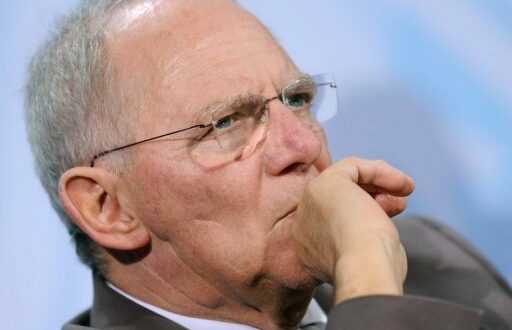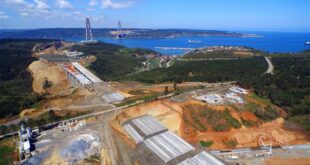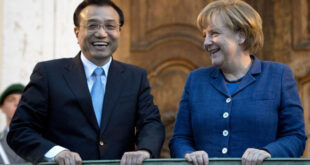MEXICO CITY: Germany clashed with some of its key G20 partners on Saturday over raising the eurozone’s firewall at the start of a key meeting of finance ministers and central bankers dominated by the debt crisis.
With markets calmer due to the latest massive bailout for Greece, divisions intensified over how to handle the crisis and its fallout.
Countries including the United States, Canada and Japan increased pressure on the eurozone to boost its firewall to avoid contagion.
They suggest the 17-nation bloc combine its temporary European Financial Stability Facility with the permanent European Stability Mechanism, to come into force in July, to provide a war chest of around 750 billion euros ($1 trillion).
“We still have to build the mother of all firewalls,” said Angel Gurria, secretary general of the Organisation for Economic Cooperation and Development, on the sidelines of the meeting on Saturday.
“Every day, the cost of the uncertainty and the cost of indecision is enormous,” he said. “You can’t accuse Europe of being too fast.”
US treasury secretary Timothy Geithner for his part called for a ‘strong and credible firewall’ to be put in place.
“If they do that then the world will not just be in a position where there will be less risk to growth globally but there will be more oxygen to deal with long-term questions.”
But European powerhouse Germany said such proposals made “no economic sense.”
German finance minister Wolfgang Schaeuble insisted that the eurozone had already “done its homework.”
“Let me be clear: it doesn’t make any economic sense to follow the calls… for endlessly pumping money into the rescue funds nor setting up the ECB printing press,” Schaeuble told a business reception.
“This would create disincentives for countries to carry on consolidating and reform and would not improve the eurozone’s economic outlook,” he added.
Germany and other European nations are piling the heat on non-European members of the G20 such as the United States, China and Japan, to gain support for an additional $500 billion of resources for the IMF.
Eurozone countries have already committed an additional 150 billion euros in bilateral loans but the United States has repeatedly refused to put in more money.
Brazil’s finance minister said on Saturday that emerging countries will help boost IMF funds only if the eurozone first bolsters its firewall and they are given more decision-making power at the fund.
Guido Mantega spelled out the conditions after meeting with his counterparts from the BRICS (Brazil, Russia, China, India and South Africa) on the sidelines of the G20 meeting.
“The emerging countries will only help on two conditions: that they (the eurozone) reinforce their firewall…” Mantega said.
And “… they will have to go through with the IMF reform” of 2010, which laid out a new system of quotas to increase the voting power of emerging economies.
Mexico hopes to make headway on IMF funding this weekend but does not expect much progress before a heads of state summit in Los Cabos in June.
It hopes to focus its presidency of the G20 on creating a stronger financial system for the future with structural reforms, better checks on banks and promoting the green economy.
The meeting started at the Chapultepec Castle in Mexico City shortly before 7pm (1am GMT), a source from the Mexican presidency said.
It was expected to wrap up with a final statement around 4pm local time (10pm GMT).
Source: Postnoon News
 Asia Finance News Asia finance news, banking, market analysis, business, Forex, trade, Cryptocurrency as it is happening in Asia. Trusted gateway for Asian financial news.
Asia Finance News Asia finance news, banking, market analysis, business, Forex, trade, Cryptocurrency as it is happening in Asia. Trusted gateway for Asian financial news.





